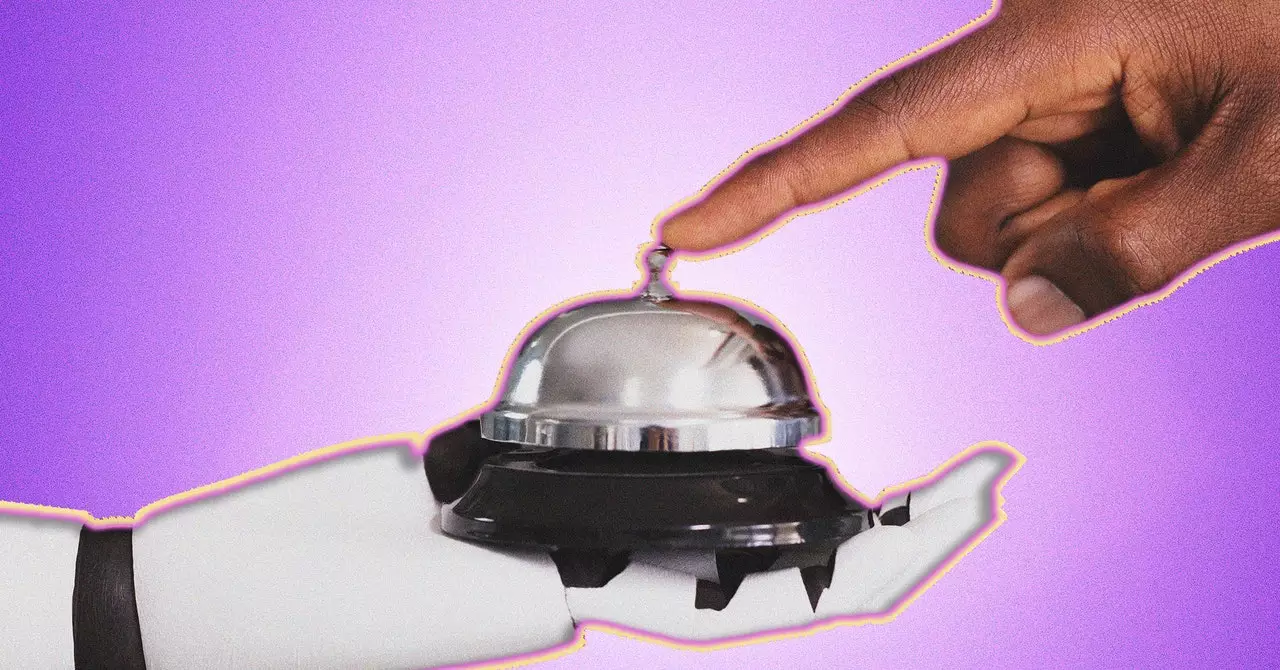In an age where technology is seamlessly woven into everyday experiences, the restaurant industry is witnessing a transformative shift through the introduction of AI voice assistants. Gone are the days when customers would only interact with human staff for inquiries and reservations; now, the digital age offers a refreshing alternative that caters to the evolving expectations of diners. The story of “Jasmine,” an AI voice assistant at a San Francisco-based Vietnamese restaurant, encapsulates a broader trend where voice technology is becoming a commonplace feature in restaurant operations.
The use of AI in restaurants is not merely about efficiency; it reflects a new frontier in customer service that emphasizes accessibility and convenience. Jasmine’s polite voice serves as an entry point for diners seeking information about the establishment, but her presence also hints at a larger industry trend. Restaurants are dealing with a backlog of phone inquiries that drain resources and disrupt the dining atmosphere. According to industry experts, this increased call volume often stems from a range of customers, including the tech-savvy younger generation, tourists unfamiliar with local options, and even older patrons who prefer a personal touch over digital platforms.
While advanced systems like ChatGPT and Gemini Live often steal the spotlight, AI voice hosts have gradually carved out their niche, particularly in urban centers such as New York, Miami, and San Francisco. With companies like Maitre-D AI, RestoHost, and Slang leading the charge, restaurant owners are realizing the tangible benefits these AI systems can provide. For instance, data suggests that popular restaurants can receive up to 1,000 calls a month, creating a pressing need for an effective communication solution.
Operational Efficiency Through AI Technology
Not only do these AI voice assistants manage routine inquiries regarding dress codes, seating arrangements, and food allergies, but they also handle reservation logistics. This capacity relieves human staff from repetitive tasks, allowing them to focus on in-person customer experiences. Matt Ho, the owner of Bodega SF, confirms this, illustrating how the constant influx of basic queries from diners could overwhelm staff during peak times. The integration of an AI system like Maitre-D allowed Ho to channel resources effectively and ensure that both diners and staff enjoyed a more serene restaurant atmosphere.
The implications for restaurant owners extend beyond mere convenience. Subscriptions to these AI platforms are often tiered, unlocking features based on need and budget while ensuring that restaurants can tailor their customer interactions. Some systems even boast multilingual capabilities, catering to a diverse clientele in increasingly cosmopolitan cities.
Despite the impressive capabilities of AI, the question of how it will affect human interactions in restaurants remains at the forefront of many discussions. While AI can handle a majority of inquiries, cofounders like Tomas Lopez-Saavedra from RestoHost emphasize that only about 10 percent of calls require human intervention. This statistic highlights the efficiency of AI, but it also raises concerns about the potential loss of personal touch in the dining experience.
AI voice assistants may be adept at handling general inquiries, but it is crucial to acknowledge that the hospitality industry thrives on genuine human connection. The challenge for restaurant owners will be in finding a harmonious balance where technology enhances the customer experience without detracting from the warmth that defines exemplary service. As AI continues to evolve, the future lies in the ability to integrate these innovations with the traditional values of hospitality.
The emergence of AI voice assistants in the restaurant industry represents a monumental shift towards a technologically adept future. As establishments like Bodega SF leverage these innovations to meet operational challenges, it is evident that customers will benefit from streamlined communication. However, the path forward requires careful consideration of the essential human elements that make dining out so enjoyable. As AI continues to evolve, it should serve as a tool for enhancing, rather than replacing, the irreplaceable human spirit in the world of hospitality.


Leave a Reply